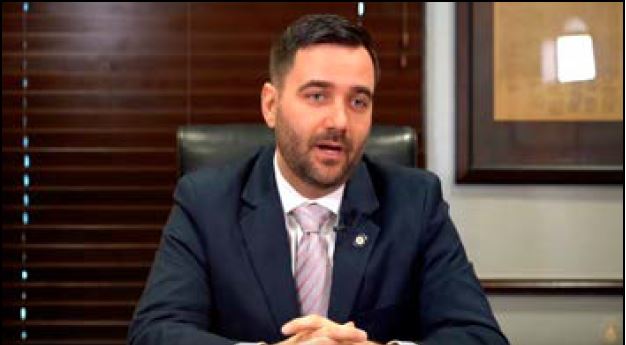Is This Any Way to Run a City’s Schools?
Leaked CTU Proposals Won’t Do Anything to Improve Schools’ Poor Performance

Early this year, Big Labor lobbyists in Oklahoma City attempted to secure quick-snap adoption of legislation (H.B.3955) foisting union monopoly bargaining on county sheriffs’ employees across the Sooner State.
H.B.3955 would have been Oklahoma’s largest expansion of public-sector monopoly bargaining since 2004, when government union bosses operating in Oklahoma’s larger municipalities were given mandatory monopoly-bargaining privileges.
These privileges were terminated in 2011, after voters had signaled their displeasure with the results.
H.B.3955 was run by Rep. Bob Ed Culver (Tahlequah), and was allowed to pass by a 9-1 margin out of the Civil Judiciary Committee run by Chris Kannady (Oklahoma City). Mr. Culver and Mr. Kannady are both ostensible Republicans in a strongly pro-Right to Work state, and the Civil Service Committee has an 8-2 GOP majority.
Soon the National Right to Work Committee sprang into action.
Committee President Mark Mix wrote to every member of the state House of Representatives to alert them to H.B.3955’s dangers and urge them to oppose it on all votes.
The Committee also sent out email alerts to members and supporters throughout Oklahoma, mobilizing them to contact their legislators and ask them to do everything they could to prevent H.B.3955 from becoming law.
Handing government union bosses who aren’t accountable to taxpayers monopoly power to codetermine with public officials how law enforcement officers are compensated and managed often undermines public safety.
One especially shocking example is the case of former Boston police officer Patrick Rose, who this April pleaded guilty to molesting six children over the course of several decades.
The Boston Police Department (BPD) originally filed a criminal complaint against Mr. Rose back in 1995 for alleged sexual assault on a 12-year-old girl.
The complaint was dropped after Mr. Rose reportedly pressured the girl into recanting her accusations. But a subsequent BPD internal investigation concluded he had likely committed the crime. He was relegated to desk duty and barred from carrying a gun.
That attempt to protect the public did not sit well with Boston Police Patrolmen’s Association (BPPA) union bosses, who have long enjoyed monopoly-bargaining privileges under Massachusetts state law.
And in October 1997, a union lawyer sent a letter to then-BPD Commissioner Paul Evans threatening to file a grievance if Mr. Rose was not returned to “full active duty,” allowed to carry a gun, and granted opportunities to collect court overtime!
In short order, Mr. Rose was returned to patrol, and remained there for another 21 years, until his retirement in 2018.
During that time, he was again and again allowed to have contact with vulnerable children, including a special-needs child whom he gave a ride in his squad car.
From 2014 to 2018, Mr. Rose even had the honor of serving as BPPA union president!
Committee Vice President John Kalb pointed out that, in addition to sabotaging efforts to protect the public from bad apples like Patrick Rose, monopoly bargaining regularly increases the tax burdens carried by private-sector employees and businesses.
“The direct taxpayer cost of establishing monopoly bargaining within sheriffs’ offices in the 77 counties across Oklahoma, no matter how big or small the county, would be enormous in itself,” said Mr. Kalb.
“But that would just be the beginning. Every few years, taxpayers would have to pay for the forging of new monopoly-bargaining agreements in their county. And they would have to pay for such deals’ implementation.”
Despite the lopsided committee vote in favor of H.B.3955, lawmakers lost interest in it as the Committee mobilization intensified. The bill ultimately died without a floor vote.
A GOP legislator known for his outspoken support of worker freedom, state Sen. Nathan Dahm (Broken Arrow), was asked to comment about what happened. He responded:
“The failure of H.B. 3955 shows that Oklahoma is still very much a Right to Work state. We don’t need to be forcing more [monopolistic] collective bargaining in this country; we need to protect the rights of workers;”
With government union bosses clearly determined to grab more power even in seemingly unlikely places, freedom-loving lawmakers “must be even more dedicated to working with organizations like the National Right to Work Committee,” added Mr. Dahm.
This article was originally published in our monthly newsletter. Go here to access previous newsletter posts.
To support our cause and help end forced unionism, go here to donate.

Leaked CTU Proposals Won’t Do Anything to Improve Schools’ Poor Performance

Wherever Big Labor wields the power to collect forced union dues, union bosses funnel a large share of the confiscated money into efforts to elect and reelect business-bashing politicians. Employment growth tends to lag as a consequence.

Members Insist They Keep Pro-Right to Work Campaign Promises